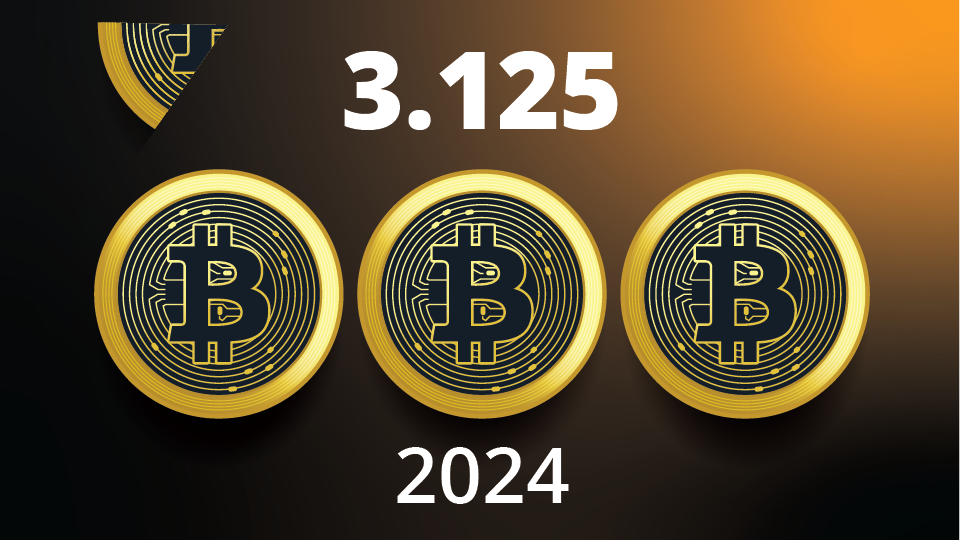Bitcoin Simplified
June 22, 2023
Read Time 3 MIN
Please note that VanEck has exposure to Bitcoin.
I personally did a deep dive on bitcoin in early 2017, determined it was “real” and then stopped paying close attention to the industry until 2021—a little bit of a Rip van Winkle situation. I can’t believe how much has changed in the past six years! I tried to communicate this to a friend a couple of weeks ago and recommended a bitcoin podcast to him that I thought was easy to understand. But to him, it was Ancient Greek. So, here’s a jargon-free update about recent developments to the best of my abilities.
What Has Led to Bitcoin’s Rise?
The first answer is that more and more investors are buying bitcoin. Even if you haven’t opened an account at a crypto exchange, you can increasingly buy bitcoin on apps that you may already have on your phone. Cash App from Square has over 50 million users1, PayPal has 429 million active users2, and Venmo now offers a credit card product that lets you earn up to 3% back in Bitcoin. This has broadened access beyond the large crypto exchanges such as Coinbase which has over 100 million users globally.3
Second, institutional investors have been buying bitcoin. A U.S. public company (MicroStrategy) holds about $4 billion in bitcoin,4 and Elon Musk’s Tesla added Bitcoin to its balance sheet in 2020. Tesla continues to be one of the top Bitcoin holders among publicly traded companies. Well-known investors are speaking in its favor, which facilitates bitcoin’s legitimacy.
And if one wants to be bullish, bitcoin’s total market value is about $513 billion (almost $27,000 per coin as of June 6, 2023)5, compared to Tesla at $694 billion6 and gold outstanding at $12 trillion.7
Many of the millions of individual and institutional investors that own bitcoin most likely own it primarily as a store of value or a form of digital gold. They want to own a currency that has limited supply, not “paper” money, whose supply governments are increasing without limit.
But What Has Changed Since 2017?
The first thing worth mentioning is that you can now earn interest on bitcoin and other cryptocurrencies. The ability to lend or stake crypto for a yield will attract many people to the crypto world, as they offer a potentially high-yield alternative to government bonds, bank deposits and gold. Accessing this income stream is technically difficult and not without risks, but it is clear how this can and probably will become available to more investors.
From its early days, crypto enthusiasts believed that Wall Street could be rebuilt better and cheaper using a completely secure technology that wasn’t controlled by a single party.
The conceptual building block that would enable the building of a new Wall Street is the ability to build logic into software—the “smart contract.” Something like, “Pay Jane X if Jane delivers Y to Jack.” The delivery of Y would have to be verified independently. “If” is the key word in that sentence because it means there are several moving parts. “If” logic has been around since probably the first lines of software—but making a network that is unhackable and reliable is another thing entirely.
In 2017, there wasn’t much built using this concept; The concept of a smart contract was widely celebrated, but no one knew whether it would be actually applied. The only thing happening was people trading bitcoin and other coins on unregulated exchanges, just like one could trade sneakers on eBay, but that activity didn’t require smart contracts.
Now there has been progress in the build-out of an independent, reliable data infrastructure to support smart contracts. Remember, using the “if” logic in finance usually refers to a price. Well, that price better be reliable! And data problems are rife on Wall Street. This data infrastructure isn’t fully proven, but a lot of important progress has been made. Firms valued in the billions of dollars are directly addressing this problem.
In sum, I believe the emergence of lending and staking digital assets as an alternative to traditional fixed income and rapidly developing data infrastructure suggest growing chances that a new digital asset Wall Street is being built—and that we are still in the early days of that.
To receive more Digital Assets insights, sign up in our subscription center.
Related Topics
Related Insights
DISCLOSURES
1 Reuters, Block says Cash App has 44 mln verified monthly users after Hindenburg report,” March 30, 2023.
2 MoneyTransfers.com, “How Many People Use PayPal in 2023?” February 16, 2023.
3 Coinbase.
4 Yahoo Finance, “Michael Saylor’s MicroStrategy buys $29.3 million in Bitcoin with price near $28,000,” April 5, 2023.
5 CryptoCompare.
6 YCharts as of June 8, 2023.
7 CompaniesMarketCap.com as of June 15, 2023.
Bitcoin (BTC) is a decentralized digital currency, without a central bank or single administrator, that can be sent from user to user on the peer-to-peer bitcoin network without the need for intermediaries.
Please note that VanEck may offer investments products that invest in the asset class(es) or industries included in this communication.
This is not an offer to buy or sell, or a solicitation of any offer to buy or sell any of the securities mentioned herein. The information presented does not involve the rendering of personalized investment, financial, legal, or tax advice. Certain statements contained herein may constitute projections, forecasts and other forward looking statements, which do not reflect actual results. Information provided by third-party sources are believed to be reliable and have not been independently verified for accuracy or completeness and cannot be guaranteed. Any opinions, projections, forecasts, and forward-looking statements presented herein are valid as of the date of this communication and are subject to change without notice. The information herein represents the opinion of the author(s), but not necessarily those of VanEck or its employees.
Cryptocurrency is a digital representation of value that functions as a medium of exchange, a unit of account, or a store of value, but it does not have legal tender status. Cryptocurrencies are sometimes exchanged for U.S. dollars or other currencies around the world, but they are not generally backed or supported by any government or central bank. Their value is completely derived by market forces of supply and demand, and they are more volatile than traditional currencies. The value of cryptocurrency may be derived from the continued willingness of market participants to exchange fiat currency for cryptocurrency, which may result in the potential for permanent and total loss of value of a particular cryptocurrency should the market for that cryptocurrency disappear. Cryptocurrencies are not covered by either FDIC or SIPC insurance. Legislative and regulatory changes or actions at the state, federal, or international level may adversely affect the use, transfer, exchange, and value of cryptocurrency.
Investing in cryptocurrencies comes with a number of risks, including volatile market price swings or flash crashes, market manipulation, and cybersecurity risks. In addition, cryptocurrency markets and exchanges are not regulated with the same controls or customer protections available in equity, option, futures, or foreign exchange investing. There is no assurance that a person who accepts a cryptocurrency as payment today will continue to do so in the future.
Investors should conduct extensive research into the legitimacy of each individual cryptocurrency, including its platform, before investing. The features, functions, characteristics, operation, use and other properties of the specific cryptocurrency may be complex, technical, or difficult to understand or evaluate. The cryptocurrency may be vulnerable to attacks on the security, integrity or operation, including attacks using computing power sufficient to overwhelm the normal operation of the cryptocurrency’s blockchain or other underlying technology. Some cryptocurrency transactions will be deemed to be made when recorded on a public ledger, which is not necessarily the date or time that a transaction may have been initiated.
Investors must have the financial ability, sophistication and willingness to bear the risks of an investment and a potential total loss of their entire investment in cryptocurrency.
- An investment in cryptocurrency is not suitable or desirable for all investors.
- Cryptocurrency has limited operating history or performance.
- Fees and expenses associated with a cryptocurrency investment may be substantial.
There may be risks posed by the lack of regulation for cryptocurrencies and any future regulatory developments could affect the viability and expansion of the use of cryptocurrencies. Investors should conduct extensive research before investing in cryptocurrencies.
Information provided by Van Eck is not intended to be, nor should it be construed as financial, tax or legal advice. It is not a recommendation to buy or sell an interest in cryptocurrencies.
Gold investments are subject to the risks associated with concentrating its assets in the gold industry, which can be significantly affected by international economic, monetary and political developments. Investments in gold may decline in value due to developments specific to the gold industry. Foreign gold security investments involve risks related to adverse political and economic developments unique to a country or a region, currency fluctuations or controls, and the possibility of arbitrary action by foreign governments, or political, economic or social instability. Gold investments are subject to risks associated with investments in U.S. and non-U.S. issuers, commodities and commodity-linked derivatives, commodities and commodity-linked derivatives tax, gold-mining industry, derivatives, emerging market securities, foreign currency transactions, foreign securities, other investment companies, management, market, non-diversification, operational, regulatory, small- and medium-capitalization companies and subsidiary risks.
All investing is subject to risk, including the possible loss of the money you invest. As with any investment strategy, there is no guarantee that investment objectives will be met and investors may lose money. Diversification does not ensure a profit or protect against a loss in a declining market. Past performance is no guarantee of future performance.
© Van Eck Securities Corporation, Distributor, a wholly owned subsidiary of Van Eck Associates Corporation.
Related Funds
DISCLOSURES
1 Reuters, Block says Cash App has 44 mln verified monthly users after Hindenburg report,” March 30, 2023.
2 MoneyTransfers.com, “How Many People Use PayPal in 2023?” February 16, 2023.
3 Coinbase.
4 Yahoo Finance, “Michael Saylor’s MicroStrategy buys $29.3 million in Bitcoin with price near $28,000,” April 5, 2023.
5 CryptoCompare.
6 YCharts as of June 8, 2023.
7 CompaniesMarketCap.com as of June 15, 2023.
Bitcoin (BTC) is a decentralized digital currency, without a central bank or single administrator, that can be sent from user to user on the peer-to-peer bitcoin network without the need for intermediaries.
Please note that VanEck may offer investments products that invest in the asset class(es) or industries included in this communication.
This is not an offer to buy or sell, or a solicitation of any offer to buy or sell any of the securities mentioned herein. The information presented does not involve the rendering of personalized investment, financial, legal, or tax advice. Certain statements contained herein may constitute projections, forecasts and other forward looking statements, which do not reflect actual results. Information provided by third-party sources are believed to be reliable and have not been independently verified for accuracy or completeness and cannot be guaranteed. Any opinions, projections, forecasts, and forward-looking statements presented herein are valid as of the date of this communication and are subject to change without notice. The information herein represents the opinion of the author(s), but not necessarily those of VanEck or its employees.
Cryptocurrency is a digital representation of value that functions as a medium of exchange, a unit of account, or a store of value, but it does not have legal tender status. Cryptocurrencies are sometimes exchanged for U.S. dollars or other currencies around the world, but they are not generally backed or supported by any government or central bank. Their value is completely derived by market forces of supply and demand, and they are more volatile than traditional currencies. The value of cryptocurrency may be derived from the continued willingness of market participants to exchange fiat currency for cryptocurrency, which may result in the potential for permanent and total loss of value of a particular cryptocurrency should the market for that cryptocurrency disappear. Cryptocurrencies are not covered by either FDIC or SIPC insurance. Legislative and regulatory changes or actions at the state, federal, or international level may adversely affect the use, transfer, exchange, and value of cryptocurrency.
Investing in cryptocurrencies comes with a number of risks, including volatile market price swings or flash crashes, market manipulation, and cybersecurity risks. In addition, cryptocurrency markets and exchanges are not regulated with the same controls or customer protections available in equity, option, futures, or foreign exchange investing. There is no assurance that a person who accepts a cryptocurrency as payment today will continue to do so in the future.
Investors should conduct extensive research into the legitimacy of each individual cryptocurrency, including its platform, before investing. The features, functions, characteristics, operation, use and other properties of the specific cryptocurrency may be complex, technical, or difficult to understand or evaluate. The cryptocurrency may be vulnerable to attacks on the security, integrity or operation, including attacks using computing power sufficient to overwhelm the normal operation of the cryptocurrency’s blockchain or other underlying technology. Some cryptocurrency transactions will be deemed to be made when recorded on a public ledger, which is not necessarily the date or time that a transaction may have been initiated.
Investors must have the financial ability, sophistication and willingness to bear the risks of an investment and a potential total loss of their entire investment in cryptocurrency.
- An investment in cryptocurrency is not suitable or desirable for all investors.
- Cryptocurrency has limited operating history or performance.
- Fees and expenses associated with a cryptocurrency investment may be substantial.
There may be risks posed by the lack of regulation for cryptocurrencies and any future regulatory developments could affect the viability and expansion of the use of cryptocurrencies. Investors should conduct extensive research before investing in cryptocurrencies.
Information provided by Van Eck is not intended to be, nor should it be construed as financial, tax or legal advice. It is not a recommendation to buy or sell an interest in cryptocurrencies.
Gold investments are subject to the risks associated with concentrating its assets in the gold industry, which can be significantly affected by international economic, monetary and political developments. Investments in gold may decline in value due to developments specific to the gold industry. Foreign gold security investments involve risks related to adverse political and economic developments unique to a country or a region, currency fluctuations or controls, and the possibility of arbitrary action by foreign governments, or political, economic or social instability. Gold investments are subject to risks associated with investments in U.S. and non-U.S. issuers, commodities and commodity-linked derivatives, commodities and commodity-linked derivatives tax, gold-mining industry, derivatives, emerging market securities, foreign currency transactions, foreign securities, other investment companies, management, market, non-diversification, operational, regulatory, small- and medium-capitalization companies and subsidiary risks.
All investing is subject to risk, including the possible loss of the money you invest. As with any investment strategy, there is no guarantee that investment objectives will be met and investors may lose money. Diversification does not ensure a profit or protect against a loss in a declining market. Past performance is no guarantee of future performance.
© Van Eck Securities Corporation, Distributor, a wholly owned subsidiary of Van Eck Associates Corporation.




